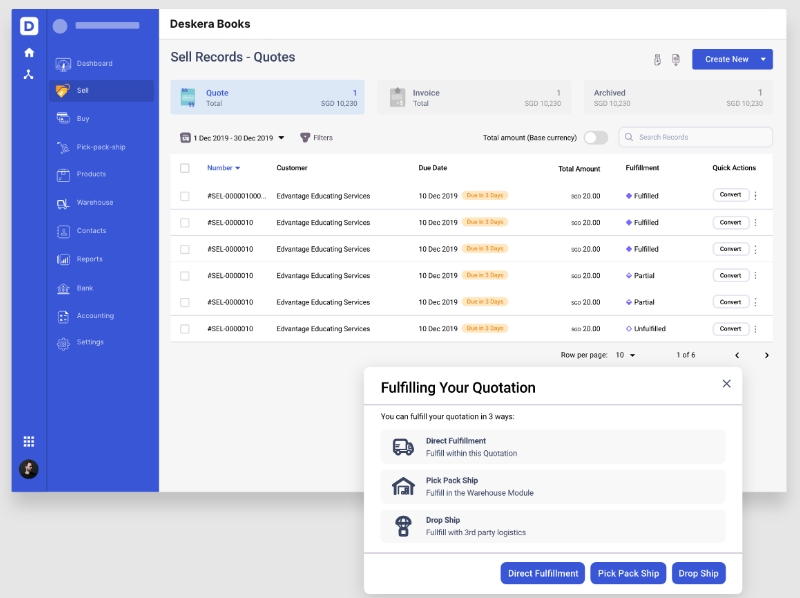Business credit score: Check out the details on how it works

Anúncios
Business credit scores are essential tools for companies looking to establish their financial credibility and build stronger relationships with lenders, suppliers, and insurers.
Just like personal credit scores, business credit scores reflect how responsibly a company manages its debts and obligations.
Anúncios
Understanding how these scores work, how they are calculated, and the benefits of maintaining a good score can be crucial for any business owner looking to expand their company.
So, if you’re curious about how business credit scores work, keep reading the information in this article!
Anúncios
What is a business credit score for?
A business credit score is a numerical representation of a company’s creditworthiness. It helps lenders, suppliers, and other financial institutions assess the risk of extending credit to a business.
Just as individuals have personal credit scores to demonstrate their reliability as borrowers, businesses have their own scores, which serve as indicators of their financial health.
Lenders use business credit scores to determine the terms and interest rates of loans, suppliers consider them when offering payment terms, and insurers evaluate them when setting insurance premiums.
A high score makes it easier to access favorable financing options, negotiate better terms, and even reduce operational costs.
How is the score calculated?
Business credit scores are calculated based on several factors, with each credit agency weighing these factors differently.
The three main business credit agencies in the U.S. are Dun & Bradstreet, Experian, and Equifax.
Each has its own scoring model, but common factors include payment history, credit utilization, company age, outstanding debts, and the risk level of the industry.
Payment history plays a significant role, with timely payments boosting your score. Credit utilization refers to how much of the available credit is being used, with a lower ratio improving the score.
Additionally, the longer a business has been in operation, the higher its score tends to be, provided it manages credit responsibly.
The amount of debt a company holds and its ability to manage it also impacts the score, as does the perceived risk associated with the company’s industry.
Business credit scores typically range from 0 to 100, with a higher score indicating a stronger credit profile. A score of 80 or higher is generally considered good in most scoring models.

What is considered a good business credit score?
A good business credit score varies depending on the scoring model used. However, a score of 80 or more on a scale of 0 to 100 is widely accepted as a strong score.
A company with such a score is seen as low risk to lenders and suppliers, which can lead to better financing opportunities and more favorable commercial terms.
On the other hand, a lower score may indicate financial instability or a history of late payments, making it more difficult to secure loans or negotiate advantageous terms.
For example, a company with a score below 50 may struggle to get approved for business credit cards or loans, and any terms offered would likely come with higher interest rates.
Benefits of maintaining a good business credit score
There are several important benefits to keeping your company’s credit score in good standing.
From securing better financing terms to improving your company’s reputation with suppliers, a solid credit score can help your business thrive.
Better payment terms with suppliers
Maintaining a good business credit score may allow you to negotiate better payment terms with suppliers.
Companies with good credit are more likely to obtain longer payment terms or discounts on bulk purchases.
This offers greater flexibility in managing cash flow more efficiently.
Good loan conditions
When your company has a high credit score, lenders see you as a low-risk borrower.
This results in easier approvals for business loans and credit lines, as well as lower interest rates.
This makes borrowing money more affordable, providing your business with more growth and expansion opportunities.
Lower insurance premiums
Insurers may also consider your company’s credit score when determining your rates.
A higher score can result in lower insurance premiums, which can help reduce your operational costs.
Good credit signals financial responsibility, which is rewarded with better prices from insurers.

Differences between personal and business credit scores
While both personal and business credit scores improve creditworthiness, there are important differences between the two.
Personal and business credit scores are separate, meaning your personal credit score doesn’t directly affect your business credit score, although some lenders may review both for small businesses or startups.
Business credit scores are publicly accessible, unlike personal credit scores, which are private. Anyone from lenders to suppliers can check a company’s credit score.
Additionally, while personal credit scores range from 300 to 850, business credit scores typically range from 0 to 100.
Credit models for business scoring weigh factors such as commercial credit and payment history more significantly than personal loans or credit card activities.
How to achieve a business credit score?
Building a strong business credit score requires consistent effort. One of the first steps is to register your company as a legal entity, such as an LLC or corporation, which helps separate your personal and business finances.
Opening business credit accounts, such as a business credit card or credit line, allows you to start building a credit history.
Paying bills on time is one of the most important actions you can take to build a good credit score. Late payments or missed payments negatively impact your score, making it harder to access credit in the future.
Regularly monitoring your business credit report is also crucial, as it allows you to identify any errors that may be harming your score.
Finally, keeping your credit utilization below 30% — using less than 30% of your available credit — will positively impact your score.
The less credit you use relative to your credit limit, the better your ability to manage debt will be reflected.

Can a business improve its credit score?
Yes, improving a business credit score is possible through various strategies. One effective way is to pay off existing debts.
The lower your outstanding balances, the lower your credit utilization, which improves your score.
Another strategy is to request higher credit limits from your creditors. A higher credit limit reduces your overall utilization, assuming your debt levels remain the same.
It’s also important to regularly review your credit report and dispute any errors that may be negatively affecting your score.
Ensuring all the information on your report is accurate can lead to an immediate improvement in your credit rating.
By adopting good financial habits and regularly checking your business credit profile, you gradually build or improve your score, unlocking favorable financial opportunities for your company.
Did you understand how business credit scores work? Take advantage of these tips to improve both your personal and business financial life.
We hope you enjoyed the content! Continue following other posts on our site for more information.
Would you like a suggestion? Also, read our article explaining how checking account fees work!





